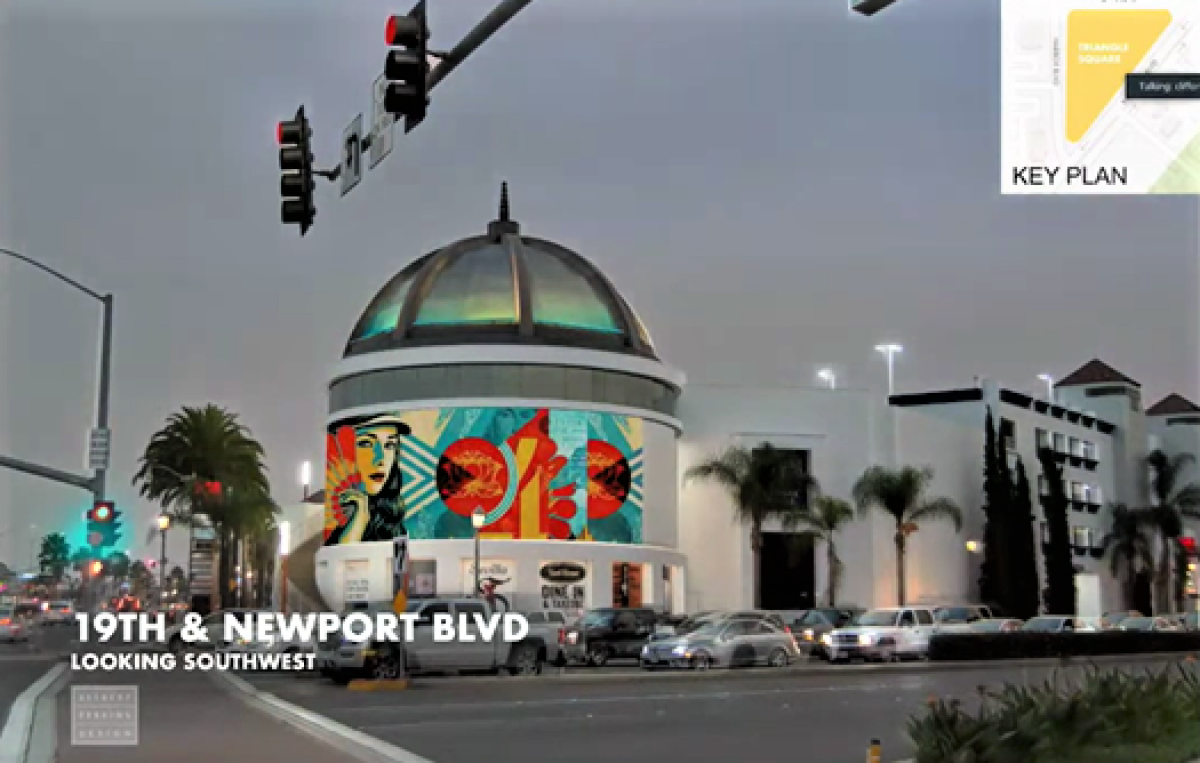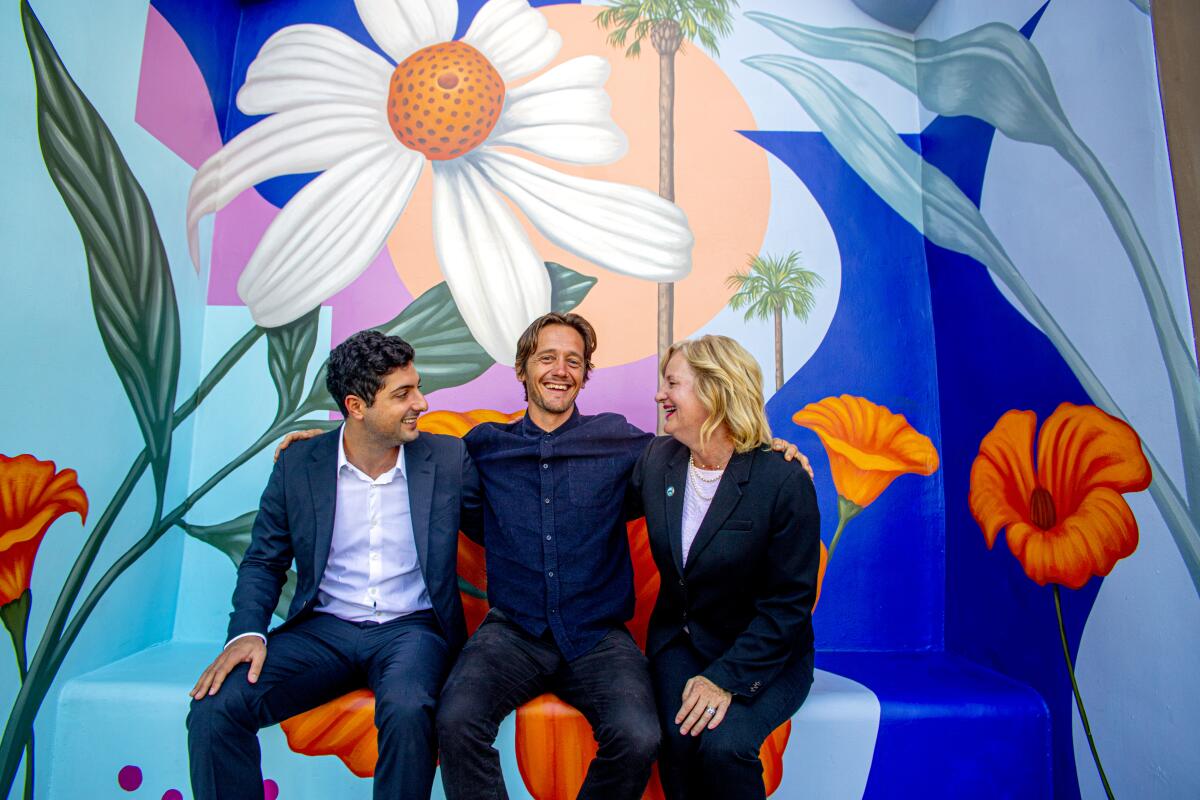Commission pauses LED billboard plan for Costa Mesa’s Triangle Square

- Share via
After a five-hour discussion about installing LED billboards at Costa Mesa’s Triangle Square — a plan that could generate revenue for the city and aid the struggling complex — planning commissioners determined Monday they were not yet ready to approve the plan.
Instead of rendering a recommendation on the project, commissioners opted to continue Monday’s public hearing to its March 8 regular meeting.
The panel was asked to weigh in on a planned signing program that would allow Triangle owner Tyler Mateen, who bought the center in 2017 and has since grappled with low tenancy, to upgrade or add nearly 5,000 square feet of exterior signage.
Part of Mateen’s proposal involves installing a combined 2,600 square feet of digital billboards that would advertise both Triangle Square businesses and third-party enterprises.
That aspect of the plan conflicts with Costa Mesa’s lighting ordinance, passed in 2002, which prohibits electronic signs with changing content and imposes other specifications that would be overturned should the program be approved.

To sweeten the deal, Mateen has agreed to share 25% of gross advertising revenue with the city and give officials use of up to 10% of the digital real estate and the right to restrict certain offensive or adult content. The entitlements would be incorporated into a 30-year development agreement that would be honored by any future owners.
Mateen, who said he was struggling to keep the retail complex open, described the proposal as a “lifeline.”
“Some people refer to Triangle Square as a cursed swamp where businesses go to die,” he told commissioners. “I choose to see [it] as a beautifully designed, architecturally significant retail powerhouse in the center of one of the most densely populated areas in Southern California.
“The signing program we are proposing allows us to play off these strengths and allow us to attract top-notch tenants to take risks with us,” he continued.
Commissioners heard nearly two hours of public comments, during which business proprietors and residents weighed the merits of the center’s revitalization against perceived impacts to driver and pedestrian safety and the character of surrounding neighborhoods.
Monday’s meeting was the first opportunity to address city officials in a public forum since the development was first aired to the commission last April and repeatedly postponed, in part, due to the coronavirus pandemic.
But when it came down to deciding whether to recommend the signing package and the development agreement to the City Council, ultimately responsible for final approval, commissioners decided more information was needed.
“The development agreement, to me, is really not good — I have a lot of problems with it,” said Chairman Byron de Arakal. “I am not ready to pull the trigger on this at all.”
De Arakal said it is crucial for commissioners to understand the intent behind the current lighting ordinance and whether city officials in 2002 would have condoned the act of giving blanket approval to a signing program that ignored local laws.
Commissioner Jon Zich agreed to the continuance, saying he was equally loath to design the project from the dais and to send council members a half-baked plan.
“We don’t own this property. It’s not our job to make it succeed,” Zich said. “There’s a lot of work that has to be done here to satisfy me.”
John Stephens, appointed to the commission last month after a four-year stint on the council, expressed a desire to do due diligence but said he didn’t want to delay a decision indefinitely.
“I do feel for Mr. Mateen,” de Arakal agreed. “He’s been doing this for almost a year. We’ll try to get him an answer as quickly as possible.”
All the latest on Orange County from Orange County.
Get our free TimesOC newsletter.
You may occasionally receive promotional content from the Daily Pilot.






